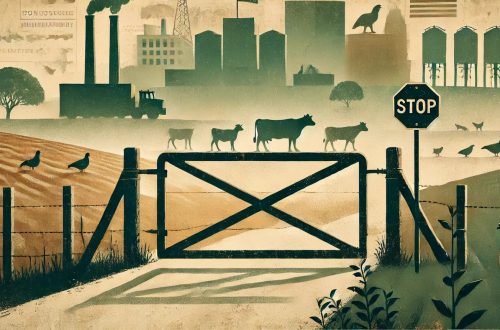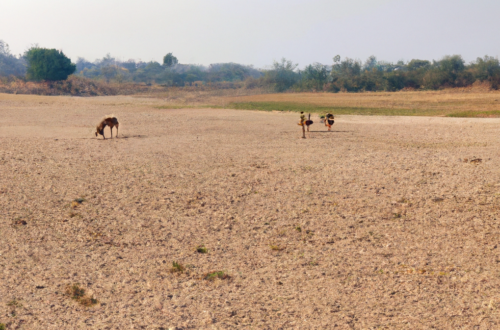India’s Public Health at Stake: The Alarming Connection between Animal Agriculture and Disease Outbreaks
India’s rising dependence on animal agriculture to meet its food demand poses significant public health concerns. The intricate link between the two is critical, with mounting evidence showcasing the detrimental effects of industrial animal farming on human health. Therefore, it is imperative to scrutinize the intricate and intellectual discourse revolving around the connection between public health and animal agriculture in India, highlighting the pressing need for a comprehensive overhaul of the country’s food production systems.
Industrial animal agriculture, marked by overcrowded and unsanitary conditions, often serves as a hotbed for pathogens capable of transferring from animals to humans. India has had its share of zoonotic diseases, such as avian influenza and swine flu. For instance, in 2006 and again in 2021, India reported outbreaks of the highly pathogenic avian influenza (bird flu), which resulted in the culling of millions of birds. These disease outbreaks endanger individual health and put an immense strain on the country’s public healthcare system, already stretched thin and under-resourced to manage large-scale epidemics.
Moreover, the habitual use of antibiotics in animal agriculture contributes to the rise of antibiotic-resistant bacteria, posing a severe threat to public health. In 2020, a study by the Indian Council of Medical Research revealed that superbugs resistant to most antibiotics are present in chicken and mutton sold across the country. The overuse of antibiotics in livestock farming fosters the development of resistant strains, diminishing antibiotics’ effectiveness in treating infections in humans and animals. India, already grappling with high antibiotic resistance rates, faces the dire repercussions of sustaining this cycle.
The environmental implications of animal agriculture intersect with public health concerns. Intensive farming methods used in industrial agriculture produce massive amounts of waste that often pollute air, water, and soil. The release of pollutants, such as ammonia, hydrogen sulfide, and particulate matter, into the environment exposes neighboring communities to respiratory conditions, including asthma and chronic obstructive pulmonary disease (COPD). For instance, studies have shown that residents near industrial farming operations in states like Punjab are more susceptible to respiratory diseases. Additionally, contamination of water sources by animal waste leads to waterborne diseases, such as cholera and E. coli infections.
The urgency for India to shift towards more sustainable and health-conscious food systems cannot be overstated. Advocating plant-based diets as a viable substitute for animal products can significantly lower zoonotic disease transmission risk and alleviate the burden on the public health system. Government initiatives should encourage organic and regenerative agricultural practices that prioritize the well-being of animals, humans, and the environment. Supporting local and small-scale farmers who adopt sustainable farming practices will not only enhance public health but also boost local economic growth and food security.
The time is ripe for a paradigm shift in India’s food systems, away from animal agriculture. The public health risks associated with industrial farming are too significant to overlook, and the consequences of inaction are dire. By adopting sustainable plant-forward farming practices, investing in research and innovation, and promoting public awareness, India can pave the way towards a healthier and more resilient future. Prioritizing the health and well-being of its citizens necessitates a fundamental transformation of the country’s relationship with animal agriculture.



